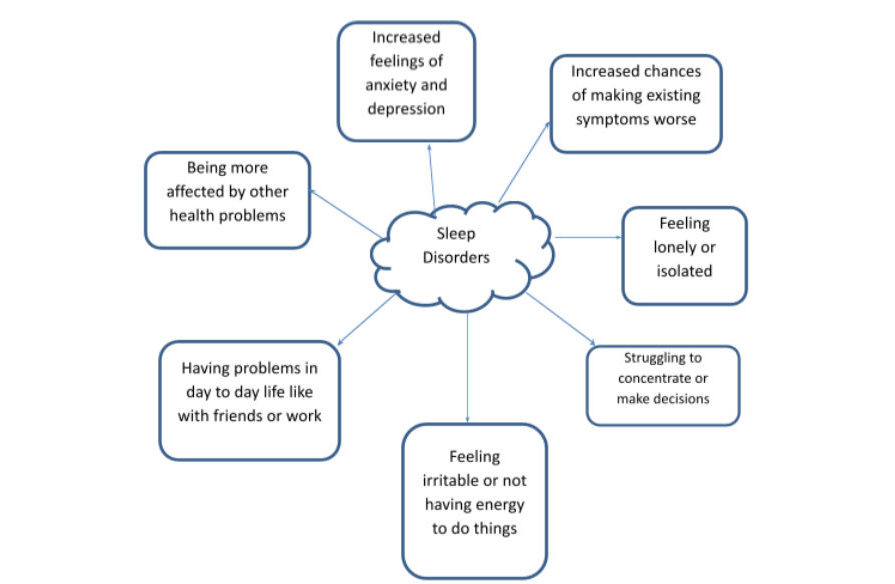Everyone needs sleep, but many of us experience problems with it. Sleep difficulties might be seen as
Sleep disorders or sleep anxiety are characterized by abnormal sleep patterns that interfere with physical, mental, and emotional functioning. Sleep disorders affects mental heath and can increase anxiety and depression.
How do sleep disorders affect my mental health?

Nature of sleep problems in anxiety and depression

Presence of sleep problems in the context of anxiety and depression increases severity of these mental health disorders as well as reduces the rates of effective treatment (Baglioni et al., 2011; Harvey, 2001; Neckelmann, Mykletun, & Dahl, 2007; Taylor et al., 2005).


How can I improve my sleep?
Here are a few tips and suggestions for improving sleep suggested by our mental health proffessionals. Some people find these ideas useful, but there are different things which work for different people at different times. Only try what you feel comfortable with, and try not to put too much pressure on yourself.
Treatments for sleep problems
There are some sleep disorders like sleep apnea, restless leg syndrome, narcolepsy and other sleep problems which may require a consultation from a physician or a psychologist.
The Center for Mental Health is the best mental health center in India. Our top Clinical psychologists can help you with the treatment of anxiety, depression, or sleep problems. Feel free to reach out to us.

